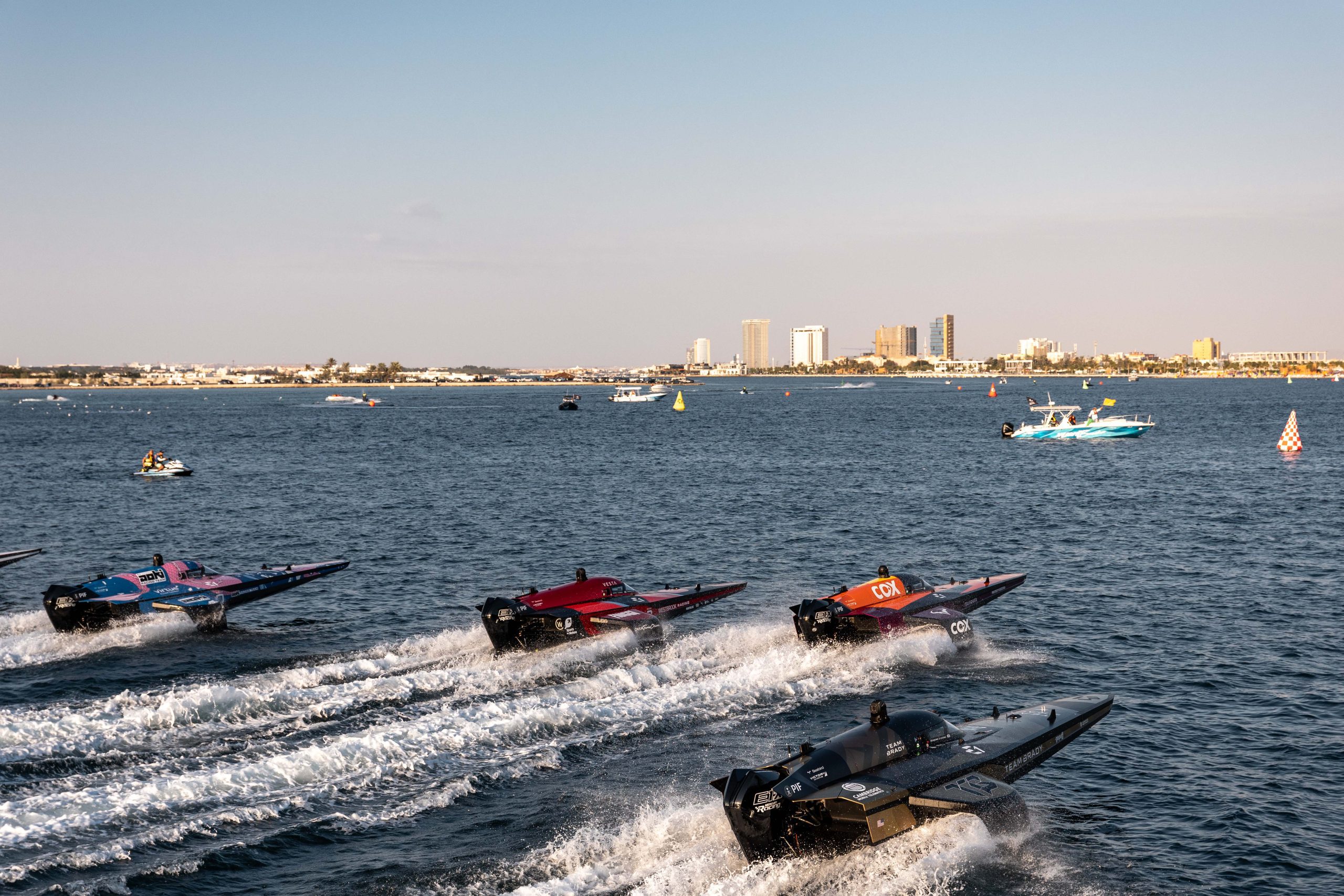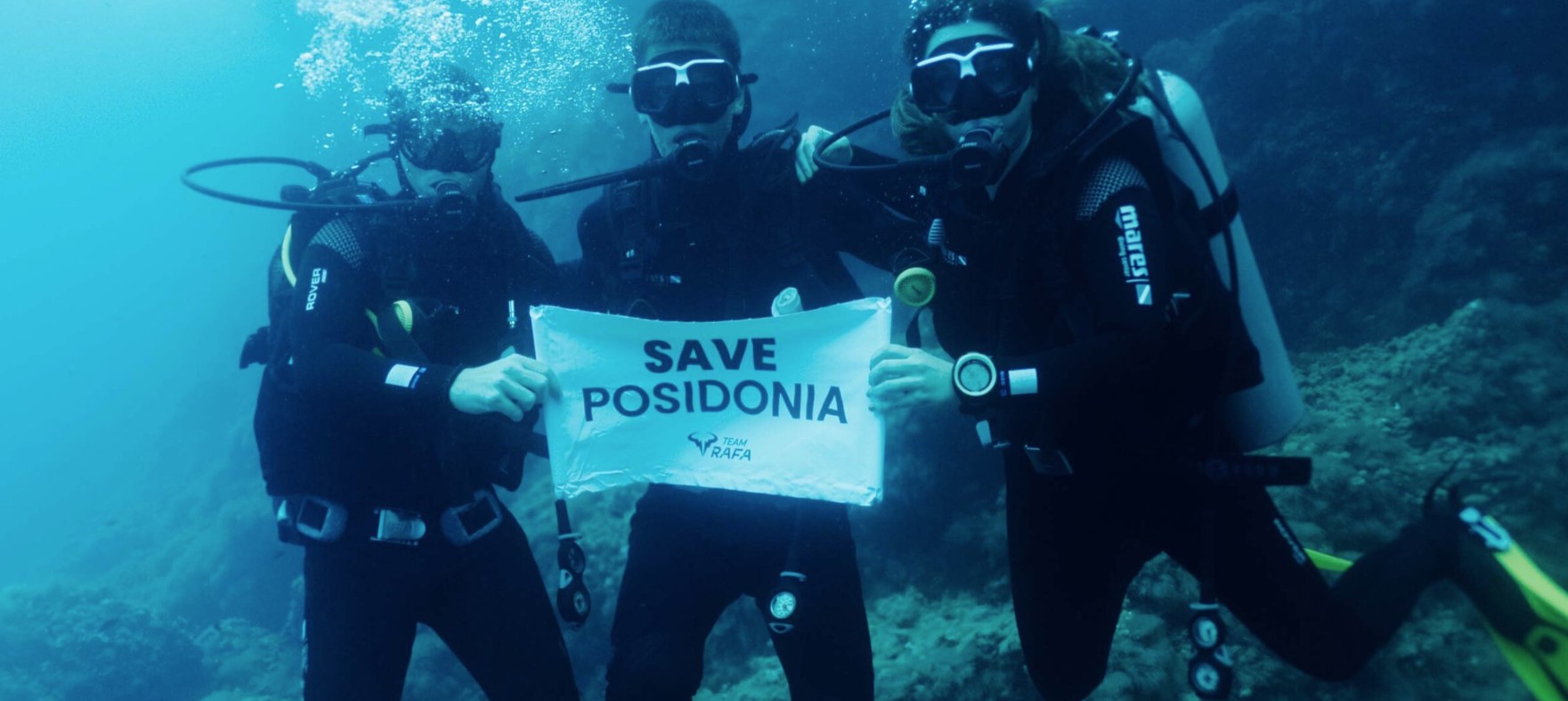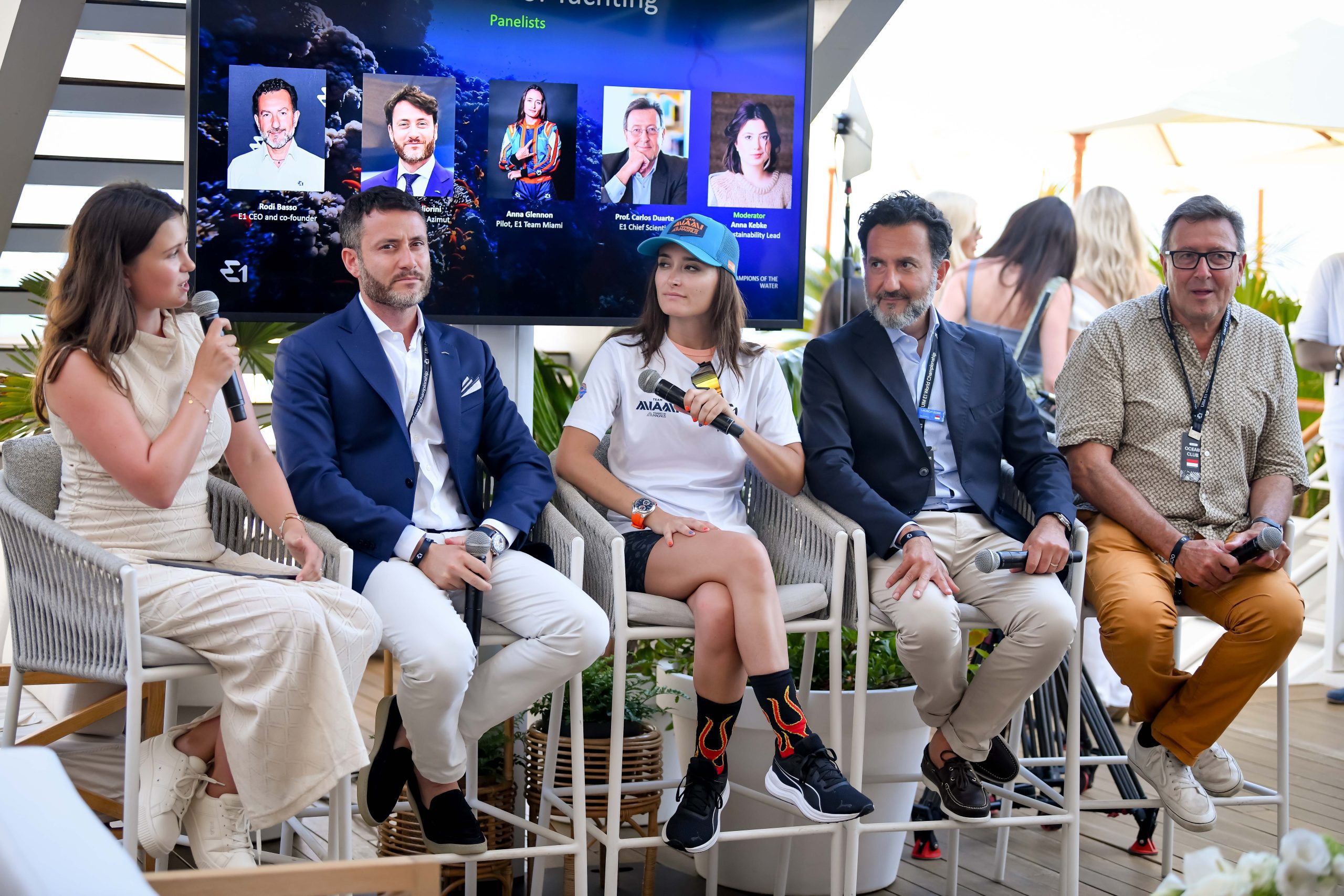Background
The E1 World Championship was created by motorsport innovators Alejandro Agag and Rodi Basso in response to a pressing gap: while sustainable mobility was gaining ground on land, progress on water lagged far behind.
Their solution was to establish the world’s first all-electric offshore powerboat racing series. More than just a sport, E1 was designed to be a platform for environmental regeneration, with a commitment to ocean health and habitat restoration embedded in its DNA.
The competition uses electric hydrofoiling RaceBird boats, which significantly reduce the noise and pollution associated with traditional powerboats. But E1’s efforts extend far beyond the water’s surface, guided by the belief that sport can accelerate conservation and stewardship.
Challenge
Marine biodiversity is under severe threat from climate change, pollution and habitat degradation. While electric boats address part of this problem, the E1 team recognised the need to do more – not just mitigate harm but actively contribute to the health of aquatic ecosystems.
The challenge was twofold: how to integrate marine protection into the sporting experience in a meaningful way, and how to incentivise race teams to get involved in environmental work at every event location.
Approach
E1 created the Blue Impact Programme, a wide-ranging initiative aimed at restoring marine and freshwater ecosystems through local action, education and science.
Each race weekend includes Blue Impact Dialogues, where marine scientists, NGOs, investors and race teams discuss themes like coral reef restoration, nature-based solutions and sustainable ocean finance.
These discussions are matched with hands-on action. In Puerto Banús, E1 hosted a harbour cleanup to engage the local community. In Dubrovnik, it worked with the Dalmatian Islands Environment Foundation to spotlight regional conservation priorities.
The programme is led by Professor Carlos Duarte, one of the world’s leading marine ecologists, with support from E1’s Head of Sustainability Leonardo Manzo, Sustainability Lead Anna Kebke and partner Red Queen Sustainability.
Building on these efforts, E1 introduced a new vehicle for Season Two: the Blue Impact Championship. This parallel competition allows teams to compete not only on the water but also through environmental contributions. Teams are scored based on the quality and impact of their conservation projects, with input from marine science experts and global fans.
For example, Westbrook Racing, owned by actor Will Smith, partnered with water campaigners Run Blue to raise awareness of the global water crisis. Team Rafa, owned by tennis icon Rafael Nadal, launched ‘Protect Posidonia’, a project focused on safeguarding Mediterranean seagrass, a crucial carbon sink and biodiversity hotspot.
The Blue Impact Programme is a wide-ranging initiative aimed at restoring marine and freshwater ecosystems through local action, education and science
Results and impact
E1’s inaugural season laid the groundwork for an integrated model of racing and restoration. The RaceBird boats demonstrated a 50-fold reduction in airborne noise and a 10-fold reduction in underwater noise compared to combustion-engine boats – a significant benefit for marine life.
The Blue Impact Programme sparked new partnerships and community action across multiple race sites, while the Blue Impact Championship has started to formalise and scale these efforts, bringing visibility, accountability and competitive energy to conservation.
With celebrity-owned teams using their platforms to engage new audiences and support local projects, the initiative is bridging the gap between elite sport and environmental impact.
Lessons learned
The E1 experience shows how sport, when designed with purpose, can help regenerate ecosystems rather than simply reduce harm. It also demonstrates the power of integrating education, action and competition, using the global reach of athletes and events to drive investment and engagement in conservation.
By challenging teams to compete for marine health as well as racing wins, E1 is creating a blueprint for how sport can align entertainment with ecological responsibility.
“E1 has environmental impact as part of its DNA. The Blue Impact Championship is a challenge to teams – not just to win on the water, but to act for nature,” says Professor Carlos Duarte.
Topics
Communications and education
Nature protection
Nature restoration
Communications
Off-site nature protection and restoration
Sport event
Marine/coastal
Motorsport
Water sports
League


